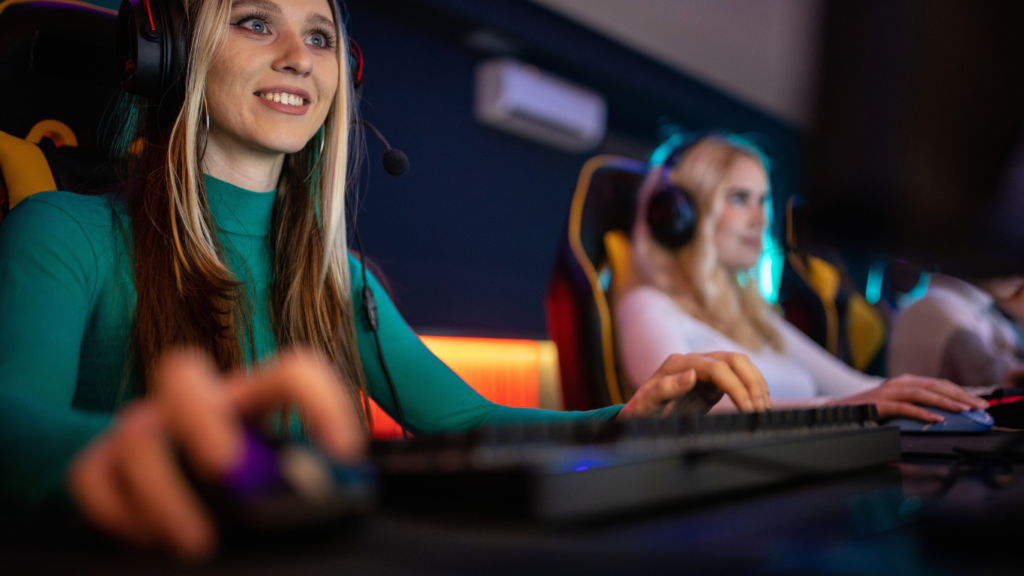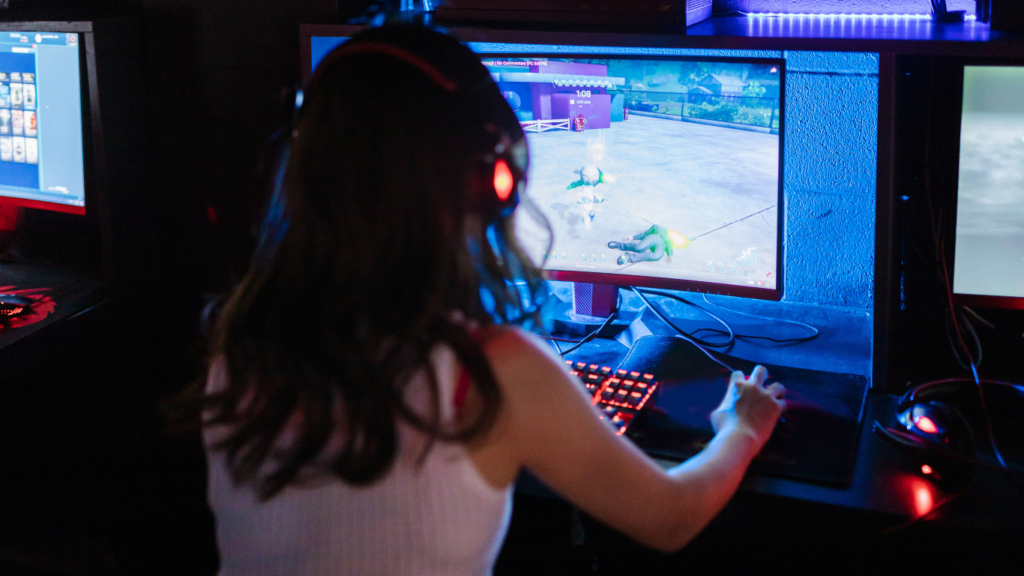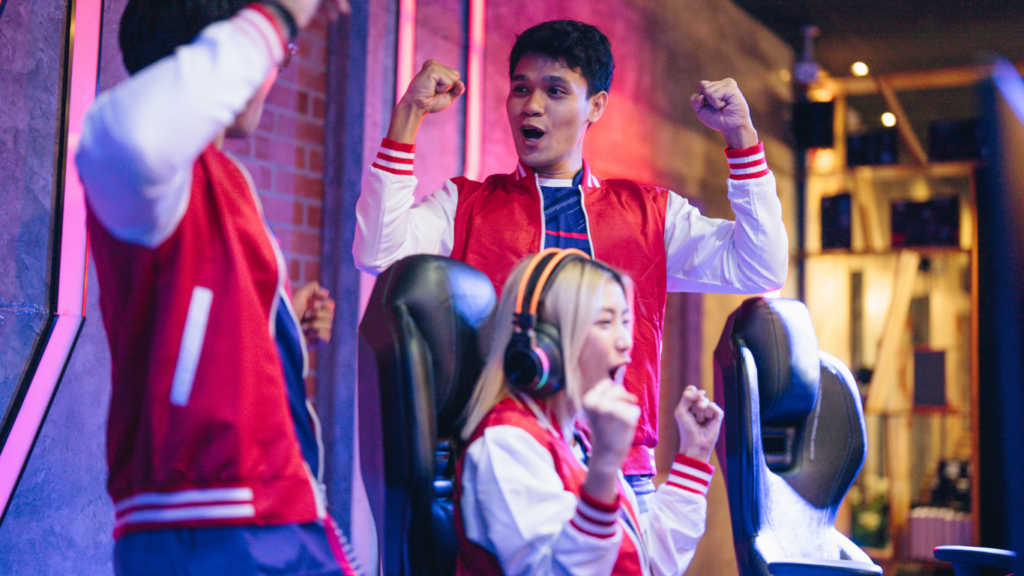Esports has exploded into a global phenomenon, but for years it’s been dominated by men. That’s changing fast as talented women are stepping into the spotlight, breaking barriers, and redefining the competitive gaming scene. This isn’t just a trend—it’s a movement that’s reshaping the industry.
The Rising Presence Of Women In Esports
The esports industry is witnessing a growing number of women making their mark. Their involvement is reshaping the competitive landscape, proving that talent knows no boundaries.
Breaking Down Barriers In A Male-Dominated Industry
Women are disrupting long-held stereotypes in esports. Historically, the field has been dominated by men, but skilled female players and professionals are challenging these norms. Organizations like Women in Games and Female Legends actively support women entering esports by:
- providing mentorship
- training
- platforms
to showcase their abilities. International competitions often feature rising female athletes, such as Sasha “Scarlett” Hostyn, who excels in StarCraft II, and Xiao Jie “Liooon” Li, the Hearthstone Grandmasters Global Finals winner in 2019. These examples demonstrate inclusivity’s growing significance in competitive gaming.
Notable Milestones And Achievements
Women in esports have achieved significant milestones, marking a shift in industry dynamics. Liooon became the first woman to win a BlizzCon championship, earning widespread recognition for her skill. Scarlett secured her title as the highest-earning female esports player with over $400,000 in prize money. In team-based games, female professional organizations like Siren and CLG Red have emerged, showcasing their abilities at high-profile events. Beyond athletes, women are also excelling as casters, coaches, and executives, broadening their impact across the industry. Each milestone further solidifies women’s vital role in shaping esports’ future.
The Challenges Faced By Women In Esports
Women in esports encounter unique challenges that hinder their participation and growth. These obstacles, ranging from social perceptions to hostile environments, require focused attention to promote equity and inclusion.
Gender Bias And Stereotypes
Gender bias often positions women as less capable in competitive gaming. Preconceived notions and stereotypes perpetuate the belief that esports is predominantly a male domain. This marginalization impacts women at both amateur and professional levels, making it harder to gain recognition.
For example, female players frequently face questions about their skill and legitimacy, even when their performances surpass expectations. Representation diminishes further when competitive teams and sponsorships overlook talented women based on biased assumptions.
Harassment And Online Toxicity
Harassment is a pervasive issue that discourages many women from engaging in esports. Online platforms and live game environments often expose female players to derogatory comments, targeted attacks, and unwarranted scrutiny.
Research highlights that more than 40% of women in gaming experience harassment during online play. Instances include receiving sexist remarks, undermining their success as luck, or targeting them with abusive messages. This toxic culture creates emotional burdens, leading some to avoid opportunities in competitive esports altogether.
Pioneers And Role Models In Women’s Esports

Women in esports have continued to break barriers, setting inspiring examples for the next generation. Their achievements demonstrate the skill, perseverance, and leadership women bring to the gaming industry.
Inspirational Female Gamers Redefining The Norm
- Sasha “Scarlett” Hostyn, known for her achievements in StarCraft II, stands as the highest-earning female esports player with earnings surpassing $400,000. Scarlett’s victories in traditionally male-dominated tournaments highlight women’s capability to compete at the highest levels.
- Xiao Jie “Liooon” Li became the first female player to win a BlizzCon championship in 2019, earning global recognition in Hearthstone. Her triumph sent a clear message: competitive gaming is for everyone.
- Vanessa Arteaga excelled in Dead or Alive 4, securing national championships and paving the way for women in console gaming. These players have proven that talent and determination can dismantle stereotypes in esports.
Organizations Supporting Women In Gaming
- Groups like Women in Games and Female Legends are actively driving change by providing mentorship programs, workshops, and networking opportunities. These initiatives create pathways for women to thrive in esports.
- The ESL Impact League focuses on female-centric competitions, offering women a platform to display their skills and compete professionally. Such projects foster inclusivity and encourage greater female representation in the scene.
- Female-led organizations, including BX3 Esports and CLG Red, empower women by developing all-female teams and offering resources such as coaching and sponsorships. These efforts build a supportive ecosystem, enhancing visibility for women in gaming.
The Impact Of Diversity On The Esports Industry
Promoting diversity in esports enhances creativity, innovation, and audience engagement. A more inclusive industry drives growth and strengthens the competitive gaming ecosystem.
Why Representation Matters
Increasing representation of women in esports challenges stereotypes and normalizes diversity. When women compete at professional levels, such as Sasha “Scarlett” Hostyn or Liooon, their visibility inspires others to pursue gaming careers. Representation impacts players, teams, and audiences by demonstrating that success comes from skill, not gender.
For esports to evolve, it’s essential to showcase diverse talent in all roles. Female casters, coaches, and executives bring unique perspectives, enriching narratives and strategies. Representation also attracts wider demographics, expanding esports’ global reach and economic potential.
Building A More Inclusive Gaming Community
Fostering inclusivity in gaming requires breaking down barriers that deter women from participating. Efforts like the ESL Impact League or initiatives by Women in Games promote safe and supportive environments. These initiatives offer mentorship, resources, and platforms to encourage women to engage meaningfully in esports.
Inclusivity must address systemic challenges, from gender bias to toxicity. Proactive measures like stronger moderation in online gaming spaces and zero tolerance policies for harassment help counter these issues. When organizations prioritize inclusivity, they create communities where diverse talent can thrive.
Key collaborations between male and female gamers further reinforce the value of diversity. Mixed-gender tournaments and co-ed teams exemplify how shared expertise elevates competitive standards, fostering respect and collaboration across the industry.





